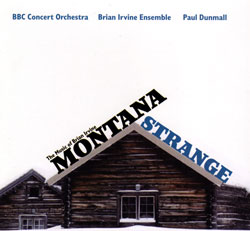
Brian Irvine's large work performed with the BBC Concert Orchestra was written and dedicated to Paul Dunmall and inspired by the film work of David Lynch, a 4-part musical landscape using 3 groups of players, 2 conductors and Dunmall himself.
Out of Stock
Quantity in Basket: None
Log In to use our Wish List
Shipping Weight: 3.00 units
Sample The Album:
Brian Irvine-conductor
Robert Zeigler-conductor
Paul Dunmall-soprano saxophone
Brian Irvine Ensemble:
John Fitzpatrick-violin
Scott Heron-cello
Lewis Smith-saxophones, clarinets
Richard Mawhinney-saxophones, clarinets
Philip Lavery-saxophones, clarinets
Alasdair Wallace-trumpet
Aidan Hughes-trombone
Michael Keeney-accordion, keyboards
Phil Smyth-electric bass
Andrew Laver-percussion, computers
Bill Campbell-electric guitar
Steve Noble-turntables
Click an artist name above to see in-stock items for that artist.
UPC: 649849982414
Label: FMR
Catalog ID: FMR 315
Squidco Product Code: 15439
Format: CD
Condition: New
Released: 2011
Country: Great Britain
Packaging: Digipack
Tracks 1-3 recorded by BBC Radio 3. Track 4 recorded at the National Concert Hall, Dublin, on January 16th, 2007.
"About 20 or more years ago I went along to a gig that my good friend Brian Carson had organised in Belfast. It was a small attic space in a tiny arts centre called the Old Museum. There was about 30 people there. The band was Paul Rogers (bass), Tony Levin (drums) and Paul Dunmall (saxophone and pipes). The music was incredible. I was completely drawn in to the magic and connection between these three special musicians. Some time later I plucked up the courage to give Paul a call and invite him over to Northern Ireland to play with my own ensemble. Without hesitation he was there and so began some years of a fantastic partnership in which Paul weaved his way freely around my fully written ensemble music. In those early days we used an ingenious light system that Paul's dad made: where a light was attached to a stand which stood beside Paul as he played and was controlled by a foot switch that I operated as I conducted the ensemble: light on - play, light off - stop!. Eventually the light system was no longer required, just a look was enough and eventually: nothing.
At this time I was also involved in creating a lot of orchestral works and we had talked on many occasions about the possibility of combining the extremes of Paul's free improvisation with the detailed rigid compositional world of contemporary orchestral music. The opportunity to came along in the form of the brilliant forward thinking BBC Jazz on 3 and I got to work on what was to be Montana Strange.
When we premiered the piece in Belfast I remember standing on the stage with the entire BBC Concert Orchestra, Robert Zeigler (conductor), my ensemble and Paul and just before it all kicks off Paul leans over to me and says "so where do you want me to play?".. I thought for a moment, before responding: "Anywhere you like big man" .. and then we were off!
As Paul weaved his magic in an around the orchestral landscape I recall one particular moment in the third movement where a period of uninterrupted orchestral sound was severed in half by what could only be described as some sort of sustained guttural, screaming, lustful, wailing from Paul's tenor saxophone: a sound so possessed that the entire horn section of the orchestra immediately turned their heads and looked at Paul in utter disbelief.
Montana Strange for Paul and myself was always about combining two extremes without regard or compromise. Paul's unique musicianship means he has a super natural ability to combine and create a dialogue, an interconnectivity with all sound no matter its origin and in turn create something unique and profoundly beautiful because of that relationship. Its an exciting piece to do, always mutating and surprising and always, always, full to the brim with a deep love and sensation of sound and humanity."-Brian Irvine
Artist Biographies
• Show Bio for Paul Dunmall "Paul Dunmall was born 1953, Welling, Kent; saxophones, clarinets, bagpipes, miscellaneous wind instruments. As told to Watson (1989), Paul Dunmall was a working class lad from Welling who left school at 15 and spent two years repairing instruments at Bill Lewington's shop in Shaftesbury Avenue, London. He turned professional at 17 and, following two years touring Europe with a progressive rock band (Marsupilami), joined the Divine Light Mission, a spiritual movement led by Guru Maharaj Ji and moved from London to an ashram in America. He told Isham (1997), 'I moved to an ashram full of musicians - a music ashram - but it was still spiritual practice. That gave me a spiritual understanding through meditation, Coltrane's music, and all the rest of it, led me to that, and that's been a fundament in my life ever since - that I can actually sit down and meditate and forget my body. I realise how important meditation is in my life... but I don't do it so much these days.' During the three years he lived in America, Dunmall played with Alice Coltrane (in a big band with the Divine Light Mission) and toured for twelve months with Johnny 'Guitar' Watson. Back in England, he played with Danny Thompson and John Stevens as well as folk musicians Kevin Dempsey, Martin Jenkins and Polly Bolton and then, in 1979 he became a founder member of Spirit Level (Tim Richards, piano; Paul Anstey, bass; Tony Orrell, drums), staying with the group until 1989. During his time with Spirit Level, Dunmall joined the two-tenor front line group Tenor Tonic with Alan Skidmore (1985), played and broadcast with Dave Alexander and Tony Moore in the DAM trio (1986) and formed the Paul Dunmall Quartet with Alex Maguire, Tony Moore and Steve Noble (1986). In 1987 Paul Dunmall joined the London Jazz Composers Orchestra, being a constant member and appearing on all their recorded output from that date onward. The following year the improvising collective quartet Mujician was formed by Keith Tippett, Dunmall, Paul Rogers and Tony Levin and has continued to be a regular performing, touring and recording group, sometimes augmented by other musicians. Dunmall has also played in a trio with Keith and Julie Tippetts and in Keith Tippett's big band Tapestry. Two other duos have also sprung out of Mujician: Dunmall with Tony Levin (two CD releases) and Dunmall in folk-influenced outings with Paul Rogers. Another regular playing partner throughout this period and up until the present includes Elton Dean. In 1995, two trios were formed, the first with Oren Marshall, tuba and Steve Noble, percussion, the second with John Adams, guitar and Mark Sanders, percussion, these sometimes coming together as a quintet. More recently, Dunmall has played in another reeds/guitar/drums trio with Philip Gibbs and Tony Marsh and there appears to be regular crossover between all these players. The Paul Dunmall Octet was founded in 1997." Dunmall also has released a large number of albums and a box set on the UK FMR label, in various configurations and instrumentation. ^ Hide Bio for Paul Dunmall • Show Bio for Bill Campbell "Bill Campbell is the drummer, singer, songwriter and leader of the international cult sensation known as BREASTFIST, which released it's much heralded debut record "tickly shimmers" in May 2012 and follow up "Amuse Deuce" in 2017 on groundUp records. Bill is also a member of Kurt Rosenwinkel's "Caipi" band. As a sideman, Bill's beats are in large demand on stage and in the studio. His unique sound and feel have made him a favorite of producers, songwriters, rock and jazz musicians alike. Artists he has worked with include Bonnie "Prince" Billy, Cass McCombs, Andrew Bird, Brazilian Girls, Chris Thile, Lauren Hill, Norah Jones, Meshell Ndegeocello, Madison Cunningham, Robin McKelle, James Iha (Smashing Pumpkins), Ryan Scott, Chris Cheek and Joel Frahm. Bill is busy recording, performing, writing music, teaching, traveling, playing table tennis and making animated cartoons." ^ Hide Bio for Bill Campbell • Show Bio for Steve Noble "Steve Noble is London's leading drummer, a fearless and constantly inventive improviser whose super-precise, ultra-propulsive and hyper-detailed playing has galvanized encounters with Derek Bailey, Matthew Shipp, Ishmael Wadada Leo Smith, Stephen O'Malley, Joe McPhee, Alex Ward, Rhodri Davies and many, many more. In the early eighties, Noble played with the Nigerian master drummer Elkan Ogunde, Rip Rig and Panic, Brion Gysin and the Bow Gamelan Ensemble, before going on to work with the pianist Alex Maguire and with Derek Bailey (including Company Weeks 1987, 89 and 90). He was featured in the Bailey's excellent TV series on Improvisation for Channel 4 based on his book 'Improvisation; its nature and practise'. He has toured and performed throughout Europe, Africa and America and currently leads the groups N.E.W (with John Edwards and Alex Ward) and DECOY (with John Edwards and Alexander Hawkins)." ^ Hide Bio for Steve Noble
11/20/2024
Have a better biography or biography source? Please Contact Us so that we can update this biography.
11/20/2024
Have a better biography or biography source? Please Contact Us so that we can update this biography.
11/20/2024
Have a better biography or biography source? Please Contact Us so that we can update this biography.
Track Listing:
1. Dick Laurent is dead / Candy coloured clown 15:08
2. A dream of dark and troubled things 4:41
3. Just cut 'em up like regular chickens 11:31
4. Drowning in the sea of your dreams 5:18
Improvised Music
Jazz
London & UK Improv & Related Scenes
Turntablists
FMR Records
Search for other titles on the label:
FMR.



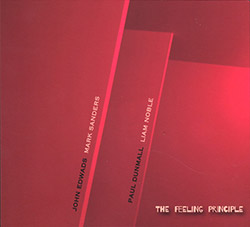


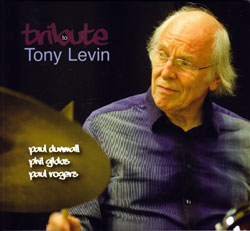
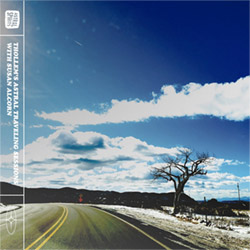



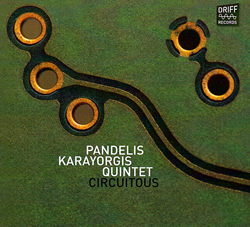
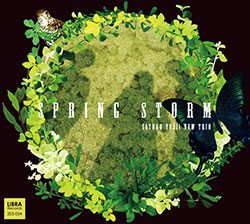
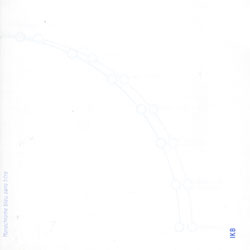
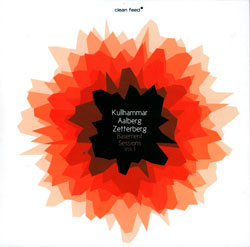
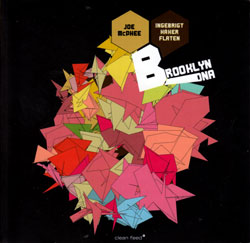
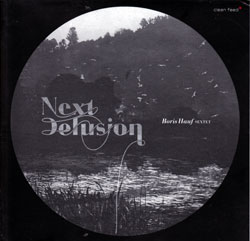
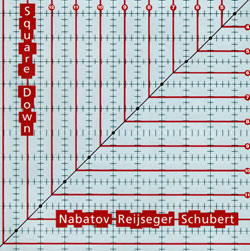
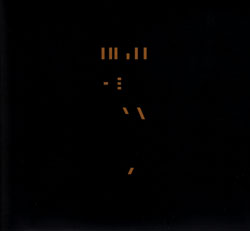
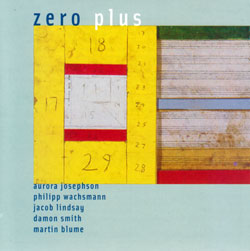
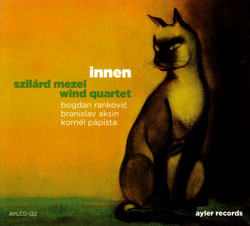
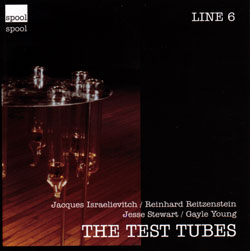
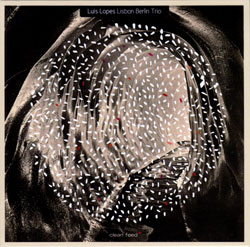
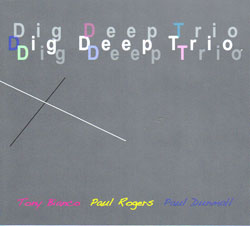
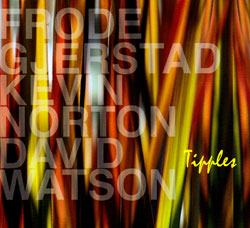
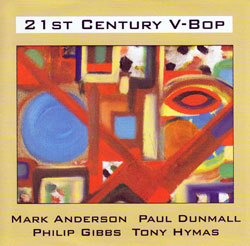
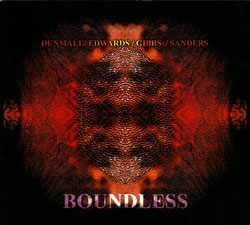
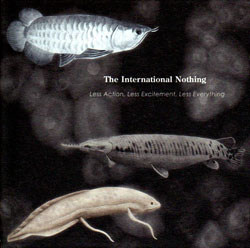


![Guy, Barry / Ken Vandermark: Occasional Poems [2 CDs]](https://www.teuthida.com/productImages/misc4/34849.jpg)
![Novoa / Carter / Mela Trio: Vol.1 [VINYL]](https://www.teuthida.com/productImages/misc4/35236.jpg)


![Elephant9 : Mythical River [VINYL]](https://www.teuthida.com/productImages/misc4/34624.jpg)
![Evans, Peter (Evans / Eldh / Black): Extra [VINYL]](https://www.teuthida.com/productImages/misc4/35279.jpg)

![McPhee, Joe: Straight Up, Without Wings [BOOK]](https://www.teuthida.com/productImages/misc4/35454.jpg)
![Jeck, Philip: rpm [2 CDs]](https://www.teuthida.com/productImages/misc4/35455.jpg)













![Barker / Parker / Irabagon: Bakunawa [VINYL]](https://www.teuthida.com/productImages/misc4/35533.jpg)
![Blaser, Samuel / Marc Ducret / Peter Bruun: Dark Was The Night, Cold Was The Ground [VINYL 10-inch]](https://www.teuthida.com/productImages/misc4/35492.jpg)








![Warren, Kenny (Warren / Hoffman / Ellman): Sweet World [VINYL]](https://www.teuthida.com/productImages/misc4/35451.jpg)




![Blake, Ran / Dave Knife Fabris: Live Amsterdam 2006, First Visit [CD + POSTCARDS]](https://www.teuthida.com/productImages/misc4/35275.jpg)













![DNS: Taking Big Bites Of The Khandas Three Cafes Deep [2 CDs]](https://www.teuthida.com/productImages/misc4/35334.jpg)




![Cleaver, Gerald: The Process [VINYL]](https://www.teuthida.com/productImages/misc4/34966.jpg)




![Alva Noto: HYbr:ID II [VINYL 2 LPs]](https://www.teuthida.com/productImages/misc4/35201.jpg)

![Baron, Derek / Luke Martin: Distinct and Concealed [CASSETTE + DOWNLOAD]](https://www.teuthida.com/productImages/misc4/35079.jpg)

![Lyle, Erica Dawn : Colonial Motels [CASSETTE + DOWNLOAD]](https://www.teuthida.com/productImages/misc4/35080.jpg)









![Sanna, Claudio: Compositori Sardi Contemporanei II [2 CDs]](https://www.teuthida.com/productImages/misc4/35317.jpg)







![Zurria, Manuel: Fame di Vento [3 CDs]](https://www.teuthida.com/productImages/misc4/35167.jpg)

![Granberg, Magnus / Nattens Inbrott / Skogen: Holde Traume, Kehret Wieder! [2 CDs]](https://www.teuthida.com/productImages/misc4/35038.jpg)
![Frey, Jurg: Outermost Melodie [2 CDs]](https://www.teuthida.com/productImages/misc4/35039.jpg)

![Pavone, Jessica: Reverse Bloom [VINYL]](https://www.teuthida.com/productImages/misc4/34895.jpg)




![Modney (Modney / Wooley / Gentile / Roberts / Pluta / Symthe / ...): Ascending Primes [2 CDs]](https://www.teuthida.com/productImages/misc4/34852.jpg)









![Elephant9 with Terje Rypdal: Catching Fire [VINYL 2 LPs]](https://www.teuthida.com/productImages/misc4/35355.jpg)
![Deerlady (Obomsawin, Mali / Magdalena Abrego): Greatest Hits [VINYL]](https://www.teuthida.com/productImages/misc4/34876.jpg)




![Haino, Keiji: Black Blues [2 CDs]](https://www.teuthida.com/productImages/misc4/35109.jpg)



![Surplus 1980: Illusion of Consistency [CD]](https://www.teuthida.com/productImages/misc4/35069.jpg)
![Staiano, Moe: Away Towards the Light [VINYL + DOWNLOAD]](https://www.teuthida.com/productImages/misc4/35037.jpg)



![Caveira (Gomes / Sousa / Abras / Ferrandini): Ficar Vivo [VINYL]](https://www.teuthida.com/productImages/misc4/34643.jpg)
![Gregg, J. J. / David Van Auken: Lunar Prairie [CD w/ DOWNLOAD]](https://www.teuthida.com/productImages/misc4/34611.jpg)

![Coultrain: Mundus [VINYL]](https://www.teuthida.com/productImages/misc4/32439.jpg)
![Mattin: Songbook #6 [VINYL]](https://www.teuthida.com/productImages/misc4/27317.jpg)
![Punkappella: Wake Up [7-inch VINYL]](https://www.teuthida.com/productImages/misc4/17519.jpg)
![Residents, The: WARNING: UNiNC.: Live And Experimental Recordings 1971-1972 [VINYL 2 LPs]](https://www.teuthida.com/productImages/misc4/31521.jpg)
![Coultrain: Phantasmagoria [VINYL]](https://www.teuthida.com/productImages/misc4/30142.jpg)
![Lennon, Sean Ono: Asterisms [VINYL]](https://www.teuthida.com/productImages/misc4/34517.jpg)

![Coley, Byron: Dating Tips for Touring Bands [VINYL]](https://www.teuthida.com/productImages/misc4/17906.jpg)

![Lost Kisses: My Life is Sad & Funny [DVD]](https://www.teuthida.com/productImages/misc4/lostKissesDVD.jpg)